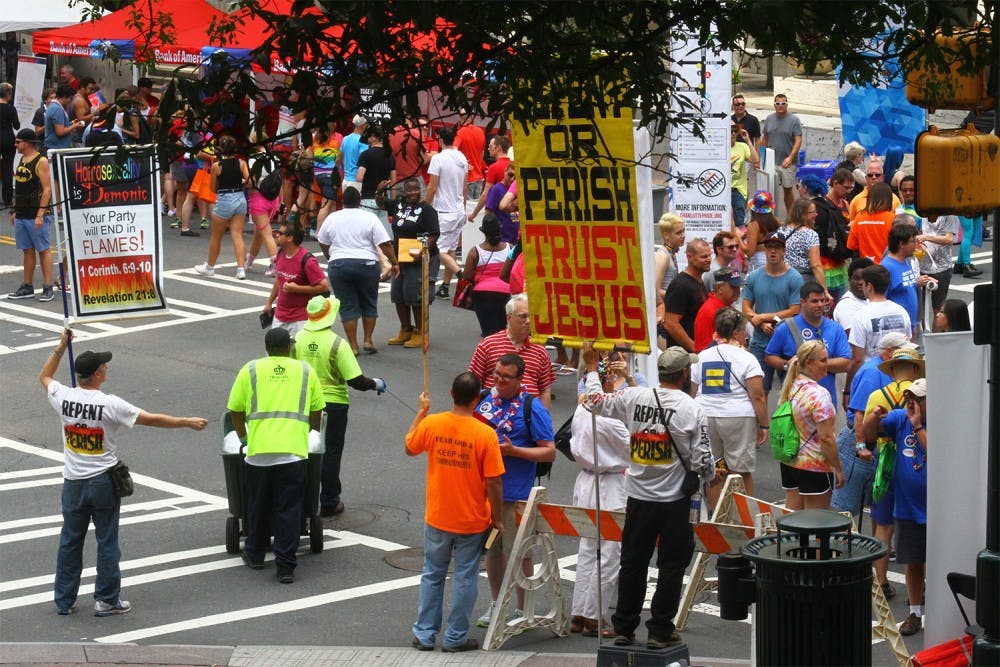Retired N.C. Supreme Court Justice Robert Orr, who now teaches law at UNC, said that state statutes don’t actually require magistrates to perform marriages as part of their duties.
“Frankly, I just think it’s the political battle between those who have supported gay marriage versus those who have resisted it and supported traditional marriage as the only viable solution,” he said. “It’s not good law, it’s just politics.”
Orr said a more effective compromise would be to allow all notary publics — who are state-appointed impartial witnesses —to perform marriage ceremonies if they want to, allowing more people to officiate weddings.
As the law currently stands, gay couples in rural areas where there are fewer magistrates are at risk of waiting an inordinate amount of time for a judge to do it instead, said UNC law school professor Barbara Fedders in an email.
The (Raleigh) News & Observer reported last month that 14 of the 672 magistrates in the state have used the law, opting out of performing any marriages for six months.
Supporters maintain the purpose of the law is to protect their First Amendment right to religious expression.
“I don’t think really any law can trump the First Amendment and in the First Amendment a person is free to express their religious beliefs, and that includes all parts of their lives,” said Frank Pray, chairman of the UNC College Republicans.
But the law strikes a chord with civil rights advocates who say it legalizes discrimination — such as Reverend Terence Leathers of Mount Vernon Christian Church in Clayton.



